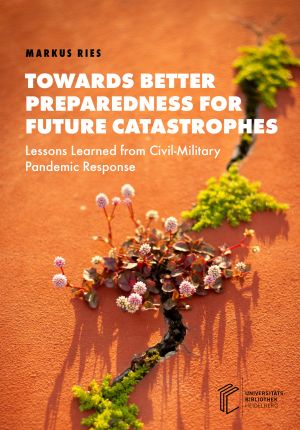
How to Cite
License

This work is licensed under a Creative Commons Attribution-ShareAlike 4.0 International License.
Identifiers
Published
Towards Better Preparedness for Future Catastrophes
Lessons Learned from Civil-Military Pandemic Response
This work is a scientific analysis of the operational experience of COVID-19 disaster relief in Heidelberg, Germany, between 2020 and 2022. Civil-military cooperation during the pandemic has made valuable contributions to strengthening the resilience of society as a whole – probably at a high price. The mitigation potential can be limited for all stakeholders if a healthcare system is already overloaded in routine operations. In the future, it will be important to reduce bureaucracy, to break the ‘panic-then-forget’ cycle through sustainable, holistic disaster preparation, to establish timely operational readiness, and to master the “infodemic” in a world of social media.


